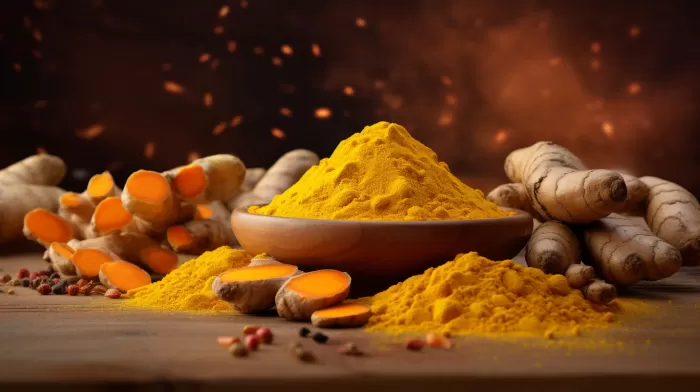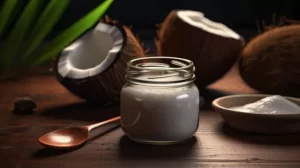Curcumin, one of the potent antioxidant and anti-inflammatory active ingredients in turmeric, has numerous benefits for men’s health. It has been beneficial for men dealing with the extremely painful condition of prostatitis and can inhibit tumor growth in prostate cancer cases. Turmeric, part of the ginger family, contains curcumin and other phytochemicals, which gives it its peppery taste. Due to its health benefits, turmeric and curcumin are often on the list of best foods for prostate health.
Chinese and Indian medicine practices have long used turmeric to treat colds, asthma, and other inflammatory health issues. Curcumin is also a common component of their diets. Recent studies have focused specifically on how curcumin can combat prostate cancer.
Curcumin And Prostate Cancer
Scientists at Rutgers observed that India’s prostate cancer rates are significantly lower than in the U.S. They hypothesized that a diet rich in plant-based foods and phytochemicals, such as curcumin and other substances found in turmeric, were contributing to Indian men’s low rate of prostate cancer. In an experiment, they injected prostate cancer cells with turmeric and a phytonutrient (phenethyl isothiocyanate) from cruciferous vegetables. The combination reduced well-established tumors substantially.
Numerous other studies have discussed curcumin’s effects on prostate cancer cells. Some studies have found that curcumin may be especially helpful for men with hormone therapy-resistant prostate cancer. Thomas Jefferson University conducted a study that showed curcumin improved hormone therapy results and inhibited prostate cell survival in men.
In another experiment, researchers studied mice with hormone therapy-resistant prostate cancer. One group was given curcumin, while the other group received a placebo. The mice that were given curcumin had significant reductions in tumor growth and size.
Curcumin In Treating Prostatitis
Curcumin’s health benefits make it particularly useful for helping prostatitis patients. In fact, curcumin is helpful for both bacterial types of prostatitis and the much more common chronic nonbacterial prostatitis/chronic pelvic pain syndrome (CP/CPPS), which accounts for approximately 95 percent of prostatitis cases.
A study published in the International Journal of Antimicrobial Agents demonstrated that when researchers gave men with bacterial prostatitis a combination of an antibiotic with supplements such as curcumin, quercetin, saw palmetto, and stinging nettle, they experienced a significant resolution of their symptoms. However, note that quercetin may reduce some antibiotics’ effectiveness, such as fluoroquinolones (including Cipro), and it is always best to consult your doctor before starting any new therapies.
Studies indicate that curcumin can help regulate the body’s normal response to inflammatory processes. This is why many published studies have shown curcumin to be effective in managing the pelvic discomfort associated with CP/CPPS. Researchers believe that curcumin benefits CP/CPPS sufferers because it reduces inflammation. This prostatitis form is challenging to treat and can be frustrating for doctors and patients alike. Natural therapies such as curcumin often provide more benefits and have fewer side effects than conventional treatments with anti-inflammatory drugs and other commonly prescribed medications.
How Much Curcumin Should You Take?
The suggested dose of standardized curcumin powder is 400 to 600 mg, three times daily. It is difficult to absorb curcumin into the body’s cells, and a modified form called Meriva is a much more bioavailable curcumin type. Sustained-release Meriva can be taken twice a day at dosages of 100mg to 160mg. One of the best prostate supplements, Prost-P10x, contains 160 mg of Meriva curcumin phytosome in its formulation. Prostate Research Labs, the maker of Prost-P10x, uses Meriva because it has been shown to result in up to a 20-fold improvement in bioavailability compared to the standard 95 percent turmeric extracts. This prostate supplement also includes other phytonutrients known to work well with curcumin to support healthy prostate function and reduce inflammation.
Curcumin is generally considered safe when taken at the recommended doses. Still, if you consume a large dose for a significant amount of time, it could cause stomach upset or ulcers. Talk to your healthcare provider before taking curcumin if you have diabetes; it can lower your blood sugar levels.



